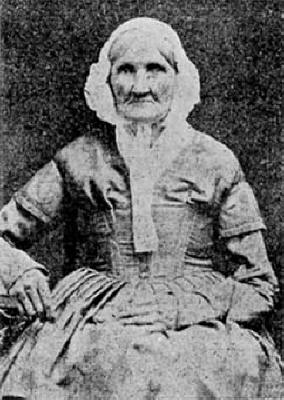
Figure 1 – Reproduction of a daguerreotype from 1840 of Hannah Stilley Gorby, perhaps the person with the earliest birth date ever photographed. In the public domain because of its age.
Figure 1 is a reproduction of a daguerreotype taken in 1840 of Hannah Stilley Gorby, who was born around 1746. The around part is important because Mrs. Gorby is believed, by many, to be the earliest born person ever photographed. This is a controversial point among people like me who worry about such distinction. So I will not say it with any certainty.
I was thinking about Hannah this morning when I came upon an interesting article on the web from the Archaeological Institute of America that the world’s oldest pretzel had been unearthed in Bavaria. Indeed, on Thursday this pretzel went on display in Regensburg, Germany. “The remains of a pretzel, a roll, and a croissant, all dating to some 250 years ago, were found at a site where the remains of a wooden house thought to be 1,200 years old have also been unearthed.”
I am not sure that this truly represents photography news, but it is curious news just the same. And the remains of the deceased are carefully on display wrapped in styrofoam and mounted atop a photograph of a modern pretzel bavariensis.
When we look at the photograph of Hannah Gorby, we invariably wonder what those ancient eyes saw and we are grateful that she and her contemporaries spared the pretzel in question. I echo the comment of Regensburg’s mayor Joachim Wolbergs that “this discovery is really extraordinary, because it depicts a snippet of everyday life.”
I might suggest that it seems possible that the meaning of human life resides in a pretzel. It is a snippet of life that we are oh so comfortable and familiar with that we can certainly see ourselves sitting down by the fire with Mrs. Stilley Gorby or her contemporary the baker of the Regensburg pretzel, yes to nosh on pretzels and to seek her view of things, her perspective, her feelings about the world and about life. And all that would interfere with this bucolic if impossible scene, other than the realities of time, would be some artificial distinction of race, nationality, or religion some arcane point of philosophy that nobody truly understands but upon which we have constructed the prejudices of the world.
